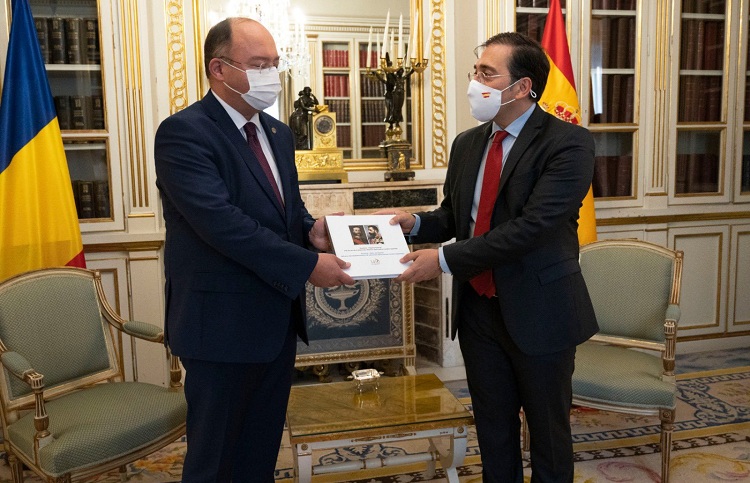The Diplomat
The Council of Europe yesterday lamented the “lack of positive and tangible progress” in the election system of the General Council of the Judiciary (CGPJ) and recommended to Spain that the members of this body be “elected by their peers” in order to avoid its “politicization.”
“A critical issue is the selection system of the General Council of the Judiciary and its perceived politicization,” assured the Group of States against Corruption (GRECO), under the Council of Europe, in its second follow-up report on recommendations for the prevention of corruption with respect to parliamentarians, judges and prosecutors, published yesterday. “This is a cause for concern, as the CGPJ is responsible for some crucial decisions in the judiciary, including the appointment of judges to senior positions and disciplinary matters,” the document continues.
The report regrets that, with respect to its previous 2013 evaluation report, “no tangible results have been achieved in relation to the composition of the CGPJ and, in particular, its selection method, i.e., the core of the recommendation,” and therefore insists on “the need to eliminate the intervention of politicians in the selection of judicial members of the CGPJ.”
Although the Spanish authorities have reiterated “their position regarding the legitimacy and democratic nature of the CGPJ selection method” and assured that “the renewal of the CGPJ is still ongoing, with a view to reaching an agreement on the renewal of this body, whose constitutional mandate expired in December 2018,” the report considers that “the information provided by the authorities does not bring anything new to what had already been analyzed in the 2013 Fourth Round evaluation report.”
“Today, the situation is exactly the same, and the concerns expressed by GRECO in light of this remain the same, if not more so, than before,” it adds. “One of the most notable objectives of a judicial council, whenever it exists, is to safeguard the independence of the judiciary, both in appearance and in practice,” but in Spain it is proving to be “quite the opposite,” as “evidenced by the repeated public concern in this area,” it warns.
The report also recalls that “the applicable Council of Europe standards concerning the election of judicial members of judicial councils” state that “where there is a mixed composition of judicial councils, for the selection of judicial members, it is advised that they should be elected by their peers (following methods that ensure the widest representation of the judiciary at all levels) and that political authorities, such as Parliament or the executive, should not be involved at any stage of the selection process”.
“Criticism has spilled over to international forums”
“Seven years after the adoption of the Fourth Round evaluation report (and the series of compliance reports that have followed), criticism of the system continues at the national level and has also spilled over into international forums”, the document states. Therefore, GRECO “can only regret the lack of tangible positive progress in this area” and urges the authorities “to implement without delay” the Council of Europe’s recommendations.
“In doing so, it is extremely important that the judiciary be consulted and have a say in key decisions concerning its functioning and priorities,” it warns. Likewise, discussions in this regard with other branches of government “must be conducted in a climate of mutual respect and take particular account of the preservation of the independence and impartiality of the judiciary.”
Likewise, GRECO recalls that, in order to end the current deadlock, of more than two years, in the appointment of the CGPJ, “a number of parliamentary groups (PSOE and Unidas Podemos)” presented “a bill to unblock the system by resorting to a qualified majority vote of three-fifths in the Cortes Generales, but, if not reached, lowering the threshold in a second vote to an absolute majority.” “GRECO, together with other key international actors in this field, including the European Commission and the European Association of Judges, expressed its concern about the above-mentioned proposal,” says the report, which recalls that “the processing of the proposal has been suspended since October 22, 2020.”
Last July, the European Commission called on Spain to end the deadlock that prevents the renewal of the CGPJ and to undertake a “structural reform” in this body so that at least half of its members are elected by the judges, in order to avoid its “politicization”. “The Spanish judicial system still faces challenges, in particular the lack of renewal of the General Council of the Judiciary in the absence of an agreement in Parliament to renew several constitutional bodies,” notes the chapter corresponding to Spain in the Commission’s second annual assessment report on the rule of law in EU countries.
In relation to this report, the president of the PP, Pablo Casado, yesterday showed his satisfaction for the coincidence between the recommendations of the Council of Europe and the thesis of his party in favor of “judges electing judges” and warned the President of the Government, Pedro Sánchez, that his party “will not move its position” because it coincides with what Europe and the judges are asking for.







